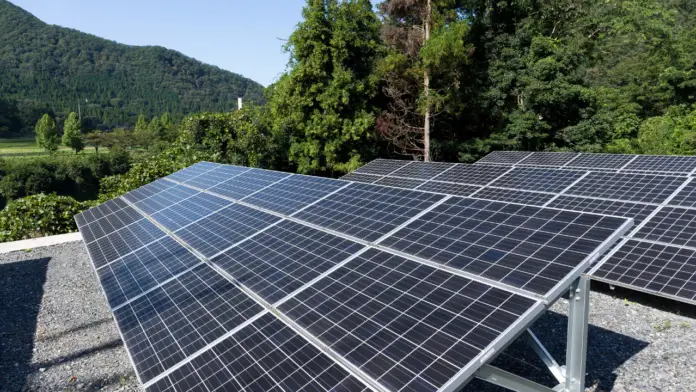
Solar energy can significantly lower a home’s electricity bills, depending on location and energy rates. It also offers significant financial incentives from the federal government, local governments, and utilities.
Moreover, a residential solar power system can increase the value of your home. Solar systems are often viewed as upgrades like kitchens or basements, and buyers have been willing to pay more for homes with them.
It is environmentally friendly
Solar power is an eco-friendly, renewable energy source that offers an alternative to fossil fuels. One of the benefits of solar electricity is that it reduces greenhouse gas emissions, air, and water pollution that harm human health.
Additionally, it doesn’t require nuclear energy or natural gas, which significantly impacts climate change. Solar electricity requires little to no water, unlike traditional fossil fuels and nuclear power plants, which rely on water for cooling. Solar technology also uses fewer resources, such as land and natural habitats, than other forms of energy.
Moreover, it does not produce harmful greenhouse gases during operation and can even be used during a heat wave or drought. Despite the initial upfront costs, solar panels pay for themselves in about four years and can reduce your electricity bills substantially.
You can also save money by installing an inverter to take advantage of incentives and a quicker break-even point. Moreover, solar energy can improve the quality of life for millions without electricity. They are often forced to rely on fossil-fuel-based lighting, which leads to unhealthy indoor environments and decreased productivity.
Fortunately, solar technologies are becoming more affordable, and the benefits of going green are more evident.
It is affordable
Solar energy is a great way to reduce utility bills and help the environment. It is an alternative to fossil fuels and does not produce harmful pollutants like carbon dioxide. It is also an excellent investment for homeowners. It can add value to your home, increase efficiency, and even qualify you for tax credits.
You can install solar panels or lease them from a solar company. However, it would be best if you considered the initial cost of installation. A reputable installer should supply an itemized list of costs, including labor, permit fees, sales taxes, interconnection fees, utility fees, and other related expenses.
The solar company should also include available tax incentives. For example, the federal solar tax credit can save up to 30 percent of the system costs. Once you have the basic numbers, you can calculate your break-even point using a simple formula. Start with the total upfront solar panel and installation costs, then subtract any applied tax credits and rebates.
Add in your annual electricity bill savings and divide the net system cost by your annual utility bill savings to get the number of years it will take to recoup your investment. You can also earn additional savings through solar battery storage and net-metering programs, which credit you for returning excess electricity to the power grid.
It is convenient
Solar energy is a clean and renewable source of electricity. It is also an excellent way to reducehousehold’shold’s dependence on the utility grid and generate some extra income. A solar power system requires a substantial upfront investment.
Still, it will pay for itself with savings on your energy bills. In addition, it will help you to reduce your carbon footprint and contribute to a sustainable future. Solar panels can produce electricity even in cloudy conditions.
Generally, the sunnier the climate, the more electricity a solar system can producetoday’soday’s ultra-sophisticated solar panels are designed to work well in all climates.
As utility rates rise, solar energy systems can save much on your power bill. Additionally, you can get back the money you invest in your solar system through the net metering program in your state. It is also possible to generate more electricity than you need, which can be sold back to your local utility company at a premium rate.
It is reliable
Solar electricity is a renewable energy source with no emissions, making it environmentally friendly. It also provides a steady energy supply and reduces your dependence on fossil fuels, which are more costly. It is also easy to use and can be implemented into any home.
In addition, it can be used to power homes without access to the grid. Solar panels generate electricity by converting sunlight into usable energy with photovoltaic (PV) cells, which are made of silicon. Whesun’s sun’s rays hit the surface of the cells; they generate electrical currents by squeezing out electrons.
This is then converted into energy your home can use by passing it through an inverter and a series of capacitors. If you doesn’toesn’t need all the electricity you create, the rest is sent to the electric grid for other customers. A solar panel system can also be paired with battery storage to provide power during non-daylight hours.
This makes solar energy a viable option for off-grid living, especially in areas where the distance to a utility grid would be expensive to extend. Solar energy has become more affordable in recent years it’s. It’s a great way to save money on your power bills and reduce your environmental footprint.















